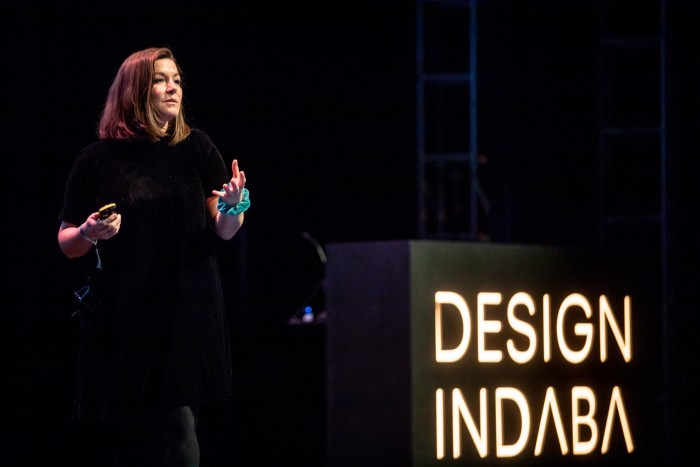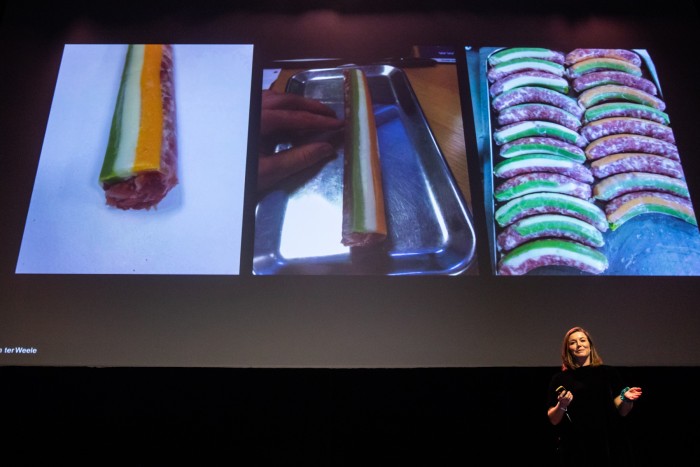For her master’s project at ECAL/Ecole cantonale d'art de Lausanne, product designer Carolien Niebling wanted to figure out how to get people to eat less meat.
While there were people who were trying to create artificial meat products or trying to grow meat in a lab, but she wanted to create an alternative in an already existing industry.
“For me, my real mission was to reduce the amount of meat we eat but then using the existing industry, so not bypassing and creating a new one…actually involving the butchers, involving them to evolve,” says Niebling.
Her research led her to the intricate history of the sausage, which has been in existence for about 5000 years and is one of the first food product designs that humans ever created.
The creation of the sausage allowed early explorers to travel for longer and to colder climates because of its incredibly long shelf life.
Once she narrowed the product of her study down, she needed to isolate an industry. This led her to the doorstep of a small-town butcher in the Netherlands. Together they combined various ingredients to make sausages that used less meat products.
These included chickpeas, peas, carrots, ginger, and coconut. While making various combinations of vegetarian sausages, she discovered that many of the ingredients were simply those found in a supermarket and that there are numerous edible ingredients out there that many people are not consuming. One of these were insects. The question of delicacy or disgust then came into play.
“I thought it was quite interesting that 80 per cent of the world already eats them on a regular basis. I looked into delicacy and disgust, like why wouldn’t we [eat them] and at times you need to try something new and you will learn to love it,” says Niebling.
She and the butcher, however, experienced some difficulty and thus had to seek the help of a molecular chef. Together they figured out that if you combine worms with carrot juice it breaks down the insect fiber and allows it to dissolve into a tasty pâté.
In the three years that she had been conducting her research she created many variations and combinations of sausage ingredients all aimed at reducing the amount of meat products made.
According to Niebling, “We can use the same techniques, the same infrastructure, we can use all the experts, we just have to add a product designer and then our future might be quite colourful.”
Watch the rest of her talk below:
Watch more Design Indaba 2019 talks:
How Hannah Barry is revolutionising the London art scene
Kordae Henry imagines an alternative African history and future
Annabelle Selldorf on architecture's responsibility beyond the building









